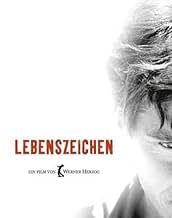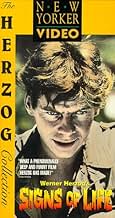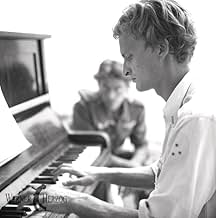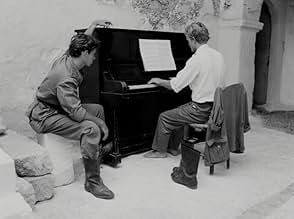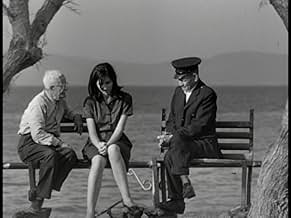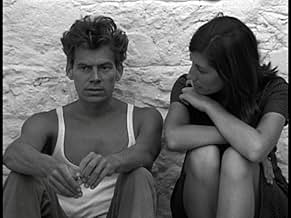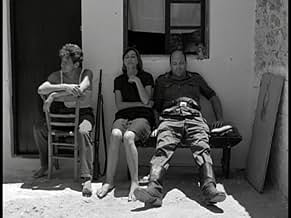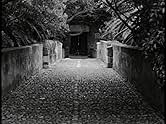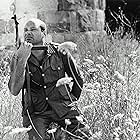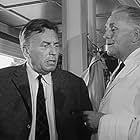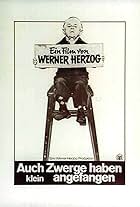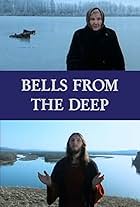VALUTAZIONE IMDb
7,0/10
2592
LA TUA VALUTAZIONE
Aggiungi una trama nella tua linguaThree wounded soldiers are removed from battle and given the task of looking after a fortress in a small coastal town. However, the pressures of isolation begin to take their toll on the men... Leggi tuttoThree wounded soldiers are removed from battle and given the task of looking after a fortress in a small coastal town. However, the pressures of isolation begin to take their toll on the men.Three wounded soldiers are removed from battle and given the task of looking after a fortress in a small coastal town. However, the pressures of isolation begin to take their toll on the men.
- Regia
- Sceneggiatura
- Star
- Premi
- 2 vittorie e 2 candidature totali
Werner Herzog
- Soldat
- (non citato nei titoli originali)
Recensioni in evidenza
I guess it should come as no surprise that there are no more than 8 reviews on IMDb about this film. The comfortably habitual Hollywood formula, which in so many ways as found itself in far more than Hollywood pictures, makes it hard for people to appreciate works such as this. This movie premiers Herzog's love for pictures and his rare ability to search them in the most mundane environments-a picture of a statue's foot embedded in the wall, a car slowly crossing a dancing road over a hill disappearing and appearing, two grown man entertained by the mysterious motion of the ears of a small owl toy figure...the list goes on forever.
It tells the story of a soldier who, after being wounded, is sent to recover in a small and peaceful Greek island where he and 3 others are ordered to care for a fort. That reveals itself a boring job and as time passes, the mundane days start slowly removing the sanity from the soldier. The story of a soldier gone mad is hardly novelty, but in Lebenszeichen the soldier goes mad from boredom and the location seems to be the cause of that and that's why we are shown the quiet little island. And it seems Herzog wants us in quiet observance of this routine, just so that he can slap us awake by the impending insanity of the character. My favorite scene is when we observe a landscape of windmills, which is usually used to portray a sense of quietude and peace, and over the hill, on the background of the picture, in small size, we see the soldier losing his mind, waving around like a madmen as if he was being tortured. That duality seems to display the despair in a higher note.
This is not an easy movie to understand and interpret, because it hides more than it shows, it indicates more than it reveals, it searches as much as it offers. Its a beautiful movie and while its not as great as some of Herzog's best efforts, it is certainly worthwhile and memorable.
PS: another reviewer seems to offer the idea that the movie might have been influenced the Stephen King's "The Shinning", but the film predates that novel by 9 years.
It tells the story of a soldier who, after being wounded, is sent to recover in a small and peaceful Greek island where he and 3 others are ordered to care for a fort. That reveals itself a boring job and as time passes, the mundane days start slowly removing the sanity from the soldier. The story of a soldier gone mad is hardly novelty, but in Lebenszeichen the soldier goes mad from boredom and the location seems to be the cause of that and that's why we are shown the quiet little island. And it seems Herzog wants us in quiet observance of this routine, just so that he can slap us awake by the impending insanity of the character. My favorite scene is when we observe a landscape of windmills, which is usually used to portray a sense of quietude and peace, and over the hill, on the background of the picture, in small size, we see the soldier losing his mind, waving around like a madmen as if he was being tortured. That duality seems to display the despair in a higher note.
This is not an easy movie to understand and interpret, because it hides more than it shows, it indicates more than it reveals, it searches as much as it offers. Its a beautiful movie and while its not as great as some of Herzog's best efforts, it is certainly worthwhile and memorable.
PS: another reviewer seems to offer the idea that the movie might have been influenced the Stephen King's "The Shinning", but the film predates that novel by 9 years.
Werner Herzog's debut feature tells the story of a wounded German paratrooper Stroszek (Peter Brogle) who is transported to the Greek island of Kos to recover physically and mentally. Already there are fellow soldiers Meinhard (Wolfgang Reichmann) and Becker (Wolfgang Von Ungern-Sterngberg), who are taking life easy in the sun with little to nothing to do. Stroszek sets them to work, but soon, as the work begins to dry up, he becomes more and more unstable in the isolation and loneliness.
Nobody really knows what goes through Herzog's head, but it is clear he is a film-making genius and has one of the finest eyes for visuals in cinema. Signs of Life explores themes that Herzog would later become engrossed and almost obsessed with - isolation, obsession and madness. While he would later employ Klaus Kinski as the face of wide-eyed insanity, here the tone is quiet, contemplative and often very funny. The opening half of the film concentrates mainly on the three soldiers trying to find things to do. Meinhard becomes frustrated with the presence of cockroaches in their apartment and builds a trap to catch them. The feeling of being trapped appears throughout the film, usually using animals - the soldiers are given a strange toy that seems to move on its own, until they open it and find out that it's full of trapped flies; and we are shown how a hen is hypnotised.
But the comedy is soon put aside as Stroszek begins his descent into madness, holding himself up in the 14th century fortress where the soldiers are stationed with a horde of ammunition. It's in the second half that Herzog shows us the images he can conjure. It's breathtaking what he achieves with a stolen 35mm camera and a micro-budget. Amongst other things, we see a seemingly endless field of windmills, and fireworks set off into the night sky. The grainy black-and-white imagery gives the whole thing a fresh beauty. This is far from the greatest debut in cinema, but a very clear indication of a director's raw skill, and of course, Herzog would go on to make many fine films.
www.the-wrath-of-blog.blogspot.com
Nobody really knows what goes through Herzog's head, but it is clear he is a film-making genius and has one of the finest eyes for visuals in cinema. Signs of Life explores themes that Herzog would later become engrossed and almost obsessed with - isolation, obsession and madness. While he would later employ Klaus Kinski as the face of wide-eyed insanity, here the tone is quiet, contemplative and often very funny. The opening half of the film concentrates mainly on the three soldiers trying to find things to do. Meinhard becomes frustrated with the presence of cockroaches in their apartment and builds a trap to catch them. The feeling of being trapped appears throughout the film, usually using animals - the soldiers are given a strange toy that seems to move on its own, until they open it and find out that it's full of trapped flies; and we are shown how a hen is hypnotised.
But the comedy is soon put aside as Stroszek begins his descent into madness, holding himself up in the 14th century fortress where the soldiers are stationed with a horde of ammunition. It's in the second half that Herzog shows us the images he can conjure. It's breathtaking what he achieves with a stolen 35mm camera and a micro-budget. Amongst other things, we see a seemingly endless field of windmills, and fireworks set off into the night sky. The grainy black-and-white imagery gives the whole thing a fresh beauty. This is far from the greatest debut in cinema, but a very clear indication of a director's raw skill, and of course, Herzog would go on to make many fine films.
www.the-wrath-of-blog.blogspot.com
Acknowledged as the film that inspired Stephen King's novel, The Shining, Signs of Life is a film which touches upon the rationality of insanity in a world gone mad. Set during the German occupation of Crete during World War II, the story centers around a German paratrooper (Stroszek played by Peter Brogle) who was injured during his first mission and sent to oversee an old fort in the uneventful city of Kos. Accompanied by his young Greek wife Nora (Athina Zacharopoulou), and two other German soldiers who do not fit well within the German military model (Wolfgang Reichmann as Meinhard and Wolfgang von Ungern-Sternberg as Becker), Stroszek is plagued by boredom and his own apparent uselessness. However, his young wife dutifully occupies her time learning German and taking care of domestic duties for the three men, Meinhard uses his engineering and creative skills to devise, among other things, a cockroach trap, and Becker studies Greek classical inscriptions and architecture, with which the fort is replete. Stroszek's only escape for the boredom of life at the fort is making Roman candles with Nora.
Typical for Herzog, Signs of Life portrays this boredom very effectively through content, pace and script, but without consigning its audience to the same fate. As with the equally excellent Heart of Glass, the passage of time seems at once extenuated and ambiguous in Signs of Life.
Stroszek becomes edgy, obsessive and unpredictable. Eventually he complains to his superiors that he has nothing to do and he is placed on a countryside patrol which is just as useless as sitting around at the fort. Surveying a beautiful countryside densely populated with a sea of windmills from a high vantage point, Stroszek finally snaps. He chases his wife and fellow soldiers out of the fort with a shotgun (though he clearly does not want to kill any of them) and begins an ominous stand-off with the occupation forces.
Herzog's frequent themes are mostly present in Signs of Life and are remarkably mature in this first major work of the master director. Stroszek is a familiar Herzog character - a man at war with society, reality and, ultimately, himself. Although it is fairly easy to write him off as a lunatic, Stroszek's part is written and acted well enough to permit a great deal of empathy. In later films dealing with similar characters and plots (i.e. Aguire: Wrath of God and Grizzly Man, etc) Herzog would take on less sympathetic crazies and examine them just as sensitively and even more powerfully. As in many of the great director's films, Herzog's anti-hero protagonist is as much a malignant product of social circumstance as a mirror of the insane implications of their own social context taken to extremes.
In Signs of Life, this is accomplished by an amazingly subtle treatment of the insanity of the German role in World War II and Stroszek's context as both a soldier and collateral casualty of that context. Subtle - because neither of these issues are examined at any point in the film, but rather - they permeate the entire film and provide the canvass for the story Herzog paints.
Herzog wrote and directed the film at the age of 25, with a paltry budget and a hand-held 35mm camera, setting sail on what has, so far, been one of the most interesting and productive career voyages in film. As usual, the sets are perfectly chosen and along with the cinematography, make the film a visual masterpiece. The script and acting are also exceptional, and though Signs of Life requires a good attention span, it does not fail to engage and entertain at many levels simultaneously.
Typical for Herzog, Signs of Life portrays this boredom very effectively through content, pace and script, but without consigning its audience to the same fate. As with the equally excellent Heart of Glass, the passage of time seems at once extenuated and ambiguous in Signs of Life.
Stroszek becomes edgy, obsessive and unpredictable. Eventually he complains to his superiors that he has nothing to do and he is placed on a countryside patrol which is just as useless as sitting around at the fort. Surveying a beautiful countryside densely populated with a sea of windmills from a high vantage point, Stroszek finally snaps. He chases his wife and fellow soldiers out of the fort with a shotgun (though he clearly does not want to kill any of them) and begins an ominous stand-off with the occupation forces.
Herzog's frequent themes are mostly present in Signs of Life and are remarkably mature in this first major work of the master director. Stroszek is a familiar Herzog character - a man at war with society, reality and, ultimately, himself. Although it is fairly easy to write him off as a lunatic, Stroszek's part is written and acted well enough to permit a great deal of empathy. In later films dealing with similar characters and plots (i.e. Aguire: Wrath of God and Grizzly Man, etc) Herzog would take on less sympathetic crazies and examine them just as sensitively and even more powerfully. As in many of the great director's films, Herzog's anti-hero protagonist is as much a malignant product of social circumstance as a mirror of the insane implications of their own social context taken to extremes.
In Signs of Life, this is accomplished by an amazingly subtle treatment of the insanity of the German role in World War II and Stroszek's context as both a soldier and collateral casualty of that context. Subtle - because neither of these issues are examined at any point in the film, but rather - they permeate the entire film and provide the canvass for the story Herzog paints.
Herzog wrote and directed the film at the age of 25, with a paltry budget and a hand-held 35mm camera, setting sail on what has, so far, been one of the most interesting and productive career voyages in film. As usual, the sets are perfectly chosen and along with the cinematography, make the film a visual masterpiece. The script and acting are also exceptional, and though Signs of Life requires a good attention span, it does not fail to engage and entertain at many levels simultaneously.
Signs of Life is one of the purest cinematic experiences in the history of film. For those unused to slow moving, simple stories the movie will probably seem painfully dull. The first time I saw it I was nearly driven crazy by the pace. It was my first Herzog movie and I was unused to movies that operated outside the Hollywood formula. But that feeling of going crazy is exactly what Herzog is trying to bring you to understand. He gets inside the boredom of his principal characters so that you viscerally understand what they are going through. When one of them finally snaps -- you understand. The visual poetry of this film will live with me forever. Herzog more than any director alive understands that a picture is worth a thousand words.
I greatly admire Werner Herzog. While I have a long way to go in catching up on his films, all those I've seen to date - whether fiction or documentary - I've absolutely loved. It stands to reason, however, that not all a filmmaker's pictures will be equal, or equally appealing to a viewer. Despite myself, 'Signs of life' is the first of the man's features I've watched that just doesn't make a major impression with me. The filming locations are lovely, and I appreciate Thomas Mauch's cinematography. I regret to say that I don't particularly get anything else out of this; I altogether struggled to even stay awake while watching.
In terms of both content and film-making I recognize the underpinnings of the style, the command of the medium, that Herzog would develop and indeed perfect in very short order hereafter. Yet in this instance there is no meaningful plot or character development until the last third of the runtime. At that point 'Signs of life' is more actively engaging, more strongly holding of one's attention. Even then the story is a little light, though, and all that would have been necessary for the picture at large to have stood out more would have been for the progression of Stroszek's condition to have been earnestly drawn out over more of the preceding length. As it is, the shift comes across as too sudden in the narrative, and therefore less than natural, believable, or convincing.
I do like this film, and think it's worth watching, especially for Herzog fans. This is a showcase of where he was so early in his career, much as 'Dark Star' is for John Carpenter, 'Stereo' is for David Cronenberg, and so on. In much the same fashion, though, 'Signs of life' also lacks the finesse, and fullness of vision, that would let it truly shine, and by that token it's not necessarily so essential a viewing experience as are many if not most of those to follow. This is, still, a fine way to spend ninety minutes - only, much less than wholly perfect or captivating.
In terms of both content and film-making I recognize the underpinnings of the style, the command of the medium, that Herzog would develop and indeed perfect in very short order hereafter. Yet in this instance there is no meaningful plot or character development until the last third of the runtime. At that point 'Signs of life' is more actively engaging, more strongly holding of one's attention. Even then the story is a little light, though, and all that would have been necessary for the picture at large to have stood out more would have been for the progression of Stroszek's condition to have been earnestly drawn out over more of the preceding length. As it is, the shift comes across as too sudden in the narrative, and therefore less than natural, believable, or convincing.
I do like this film, and think it's worth watching, especially for Herzog fans. This is a showcase of where he was so early in his career, much as 'Dark Star' is for John Carpenter, 'Stereo' is for David Cronenberg, and so on. In much the same fashion, though, 'Signs of life' also lacks the finesse, and fullness of vision, that would let it truly shine, and by that token it's not necessarily so essential a viewing experience as are many if not most of those to follow. This is, still, a fine way to spend ninety minutes - only, much less than wholly perfect or captivating.
Lo sapevi?
- QuizWerner Herzog's first feature film. Often regarded as a pioneer of New German Cinema, his films often feature ambitious protagonists with impossible dreams, people with unusual talents in obscure fields, or individuals in conflict with nature. In 1961, when Herzog was 19, he started work on his first film Herakles. He has since produced, written, and directed over 60 films and documentaries. He has also published over 12 books of prose and directed many operas. French filmmaker François Truffaut once called Herzog "the most important film director alive." American film critic Roger Ebert said that Herzog "has never created a single film that is compromised, shameful, made for pragmatic reasons, or uninteresting. Even his failures are spectacular." He was named one of the world's 100 most influential people by Time in 2009.
- Citazioni
Young Child: Now that I can talk, what shall I say?
- ConnessioniFeatured in Was ich bin, sind meine Filme (1978)
I più visti
Accedi per valutare e creare un elenco di titoli salvati per ottenere consigli personalizzati
- How long is Signs of Life?Powered by Alexa
Dettagli
Botteghino
- Budget
- 25.000 DEM (previsto)
- Tempo di esecuzione1 ora 30 minuti
- Colore
- Mix di suoni
- Proporzioni
- 1.37 : 1
Contribuisci a questa pagina
Suggerisci una modifica o aggiungi i contenuti mancanti

Divario superiore
By what name was Segni di vita (1968) officially released in India in English?
Rispondi
